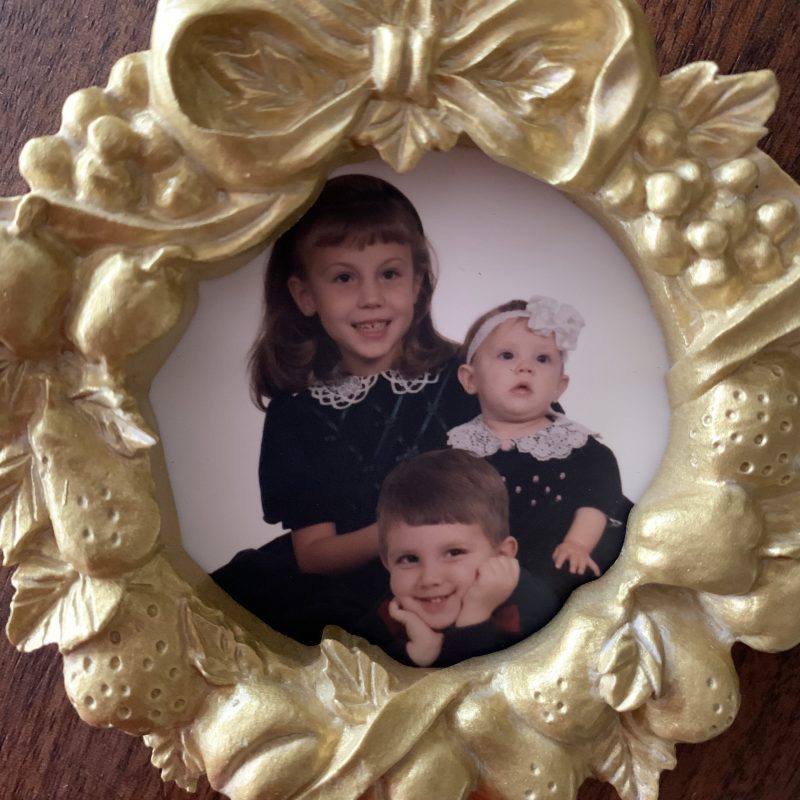Tweaking Tradition, Part 2
Christmas is thundering closer.
But something just doesn’t feel right.
We just spent five days traveling to the Cleveland Clinic for my heart failure evaluation. Not a journey I wanted to make the week before Christmas. But this is where God has us now, and it’s been a mixed bag with lots of blessings thrown in. I am looking forward to new memories as we search for our new traditions. My parents are assessing their new normal as well. My dad just finished his 22nd chemo treatment for lung cancer and my mother balances her struggle with debilitating pain and caring for her husband.
Like me, perhaps like you, probably like most of us, they desperately want to hold on to the traditions they remember.
The following article was first published last year in a print and online magazine. I am now sharing it on my website in two parts. Part 1 can be found here.
You may have noticed that Part 1 ended on a down note: “Everything seemed wrong…” That was me being transparent. But it was also the Spirit placing in our hearts a longing for Jesus to come again, to make everything right again.
And He is coming.
Meanwhile, we live in the space between. We cling to our hope, we wait for our heaven. And we strive now to make memories in our imperfect holidays.
Whatever is missing from your tradition this Christmas season, the loved one, the carefree future, the second chance. He’s coming to make it right again.
Whatever is missing from your tradition this Christmas season, the loved one, the carefree future, the second chance. He’s coming to make it right again.Click To TweetOur constant challenge is to remember Him.
Part 2 below explores how my lost traditions were replaced by memory moments. This was an epiphany for me: Remembering is what we all really desire anyway. Memories to form a sturdy connection to our family and to our God.
If your family, like ours, is tweaking traditions to allow everyone to be part of the memory-making this year, I have a gift for you. Make sure to check it out at the end of this post.
But above all, whatever your Christmas season holds, make sure you remember the best Gift.
Until that little Babe makes everything right again.*****
(Continued from Part 1)
The determined memory moments began to step in for the traditions I had lost.
My younger daughter, knowing I would miss her Christmas concert, arranged for the choir to do a private performance for me in the hospital chapel. As my husband wheeled me in, I saw the young faces with tears streaming down and I felt the gift they were giving me. It was not a tradition, but it became a memory.
We started playing games again for the first time since Candy Land. Spy Fall, Clue, Pandemic, dominoes, cards (and slice and bake cookies) made the must-do list most nights. Everyone pitched in to buy and prepare food, wash dishes, churn through laundry, and vacuum the floors. They didn’t do any of it the way I would have, but it was all so beautiful. And this, too, earned a place as a treasured memory.
My older daughter texted me constantly with encouraging words and songs. My usually silent son called and checked in every few days. And when they both finally made it in for the holidays to join their younger sister, I wasn’t busy cooking or wrapping or even making beds. I was there on the couch in front of a warm fire, in the moment with each one of them. And I didn’t miss anything. I had time to talk with them and truly appreciate the young adults that had replaced my babies. I had an opportunity to fully enjoy having them home. Even then I wondered why it took me over twenty years to allow myself to stop worrying about keeping all the traditions. And instead soak in the moments that would become memories.
Still, that was a difficult Christmas. So much uncertainty hung in the chilly air. As we progress through life, we all will face those foggy holidays when someone in our family is ill. Traditions must adapt and change so people we love can continue to be part of our memory making.
I have learned a few things firsthand about holidays with someone who has a serious illness:
- The ill person doesn’t want every decision or conversation to be about their health or needs. They want to experience normal life through you, as much as possible. It doesn’t help for others to not eat certain foods because they can’t, or for everyone to miss a performance because they are too tired to attend. They don’t want to feel the guilt of taking everyone’s experience with their own. Their own disappointment is enough.
- That being said, plan with flexibility. Allow for down time to rest, bond, and forge new memories and connections. That moment with your baby niece or the conversation with your young adult cousin will soon be out of reach.
- Most of the time, simpler is better. Get over the guilt or of using a mix, refrigerated dough, or bakeries. You don’t have to decorate every room like it’s a social media shot. It can feel intimidating, even though we mean it to be welcoming. Your kids will appreciate a thoughtful gift or two just as much as ten or twelve expected ones. And if they don’t, it’s time they did before you launch them.
- Speaking of simple, your children will treasure what you least expect. I asked my young adult children what they loved most about holidays growing up, hoping to hold on to the few they thought were most worthy. Their answers surprised me. I learned that most of what I was going crazy doing “for my children,” I was actually doing for me. They mentioned the gifts they handmade for each other every year, games we played, visiting family, and family visiting us. Not making the list: all the homemade dishes I thought were crucial for a proper holiday, décor I spent weeks perfecting and planning, classroom parties and favors, and gifts I stood in line for back when Black Friday was a semi-secret, off-line sale.
So, four years ago, unauthorized by convention, a serious health condition began teaching me something about traditions and memories. As my undiagnosed heart failure fatigue crept up on me leading into that Black Friday, I began to dread the very season that was meant for hope. And then as I learned about my illness, more than anything, I started to rethink traditions and memories.
Traditions are safe but restrictive. Memory moments are risky but freeing.
Mostly I learned that memories far surpass traditions. And with those softening pumpkins still out, we had Christmas at our house that year. My parents and siblings came. I didn’t decorate. I didn’t cook. I didn’t make homemade treats for neighbors, teachers, and friends. I didn’t wrap gifts in matching paper or worry about finding the perfect gift for each child.
I still don’t do all of those things. Christmas has changed forever at my house.
Heart failure is not curable. For most, doctors can manage the symptoms. For some, they can slow the progression. So I am learning that holidays, and everydays, aren’t about trying to make everything perfect, and checking off every tradition. I always knew this on some level, but somehow the traditions were easier to cultivate than the memories.
And now chronic illness continues to teach me what merely living could not. Christmas is about resetting, reconnecting, and rethinking where life is taking us. Especially when the number of Christmases left is a little murky.
With a chronic, progressive illness come many challenges, physical, emotional, and spiritual. But a gift also arrives. The gift of fully embracing the brevity of life that many of us ignore or diminish, the gift to experience Christmas the way it was always meant to be.
We celebrated an untraditional Christmas in a pumpkin-decorated house with no Christmas tree that year. And it is one of my favorite memories.

The 25 Best Games for Your Gathering This Year
Do you need to tweak your traditions this year? I’ve curated 25 of the best games and activities for your multi-generational, multi-ability, multi-mobility gathering. Just enter your information below and I’ll email it to you.
